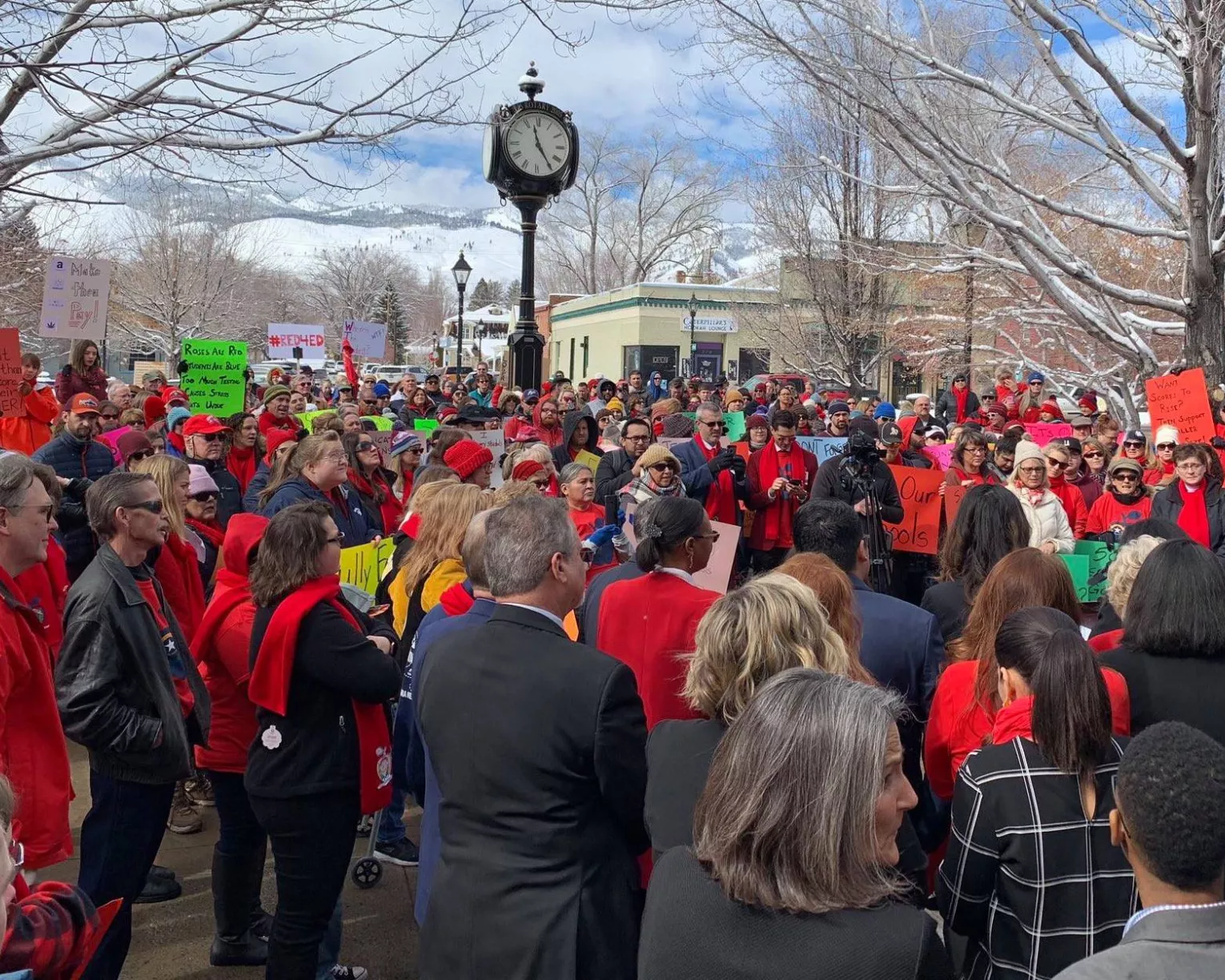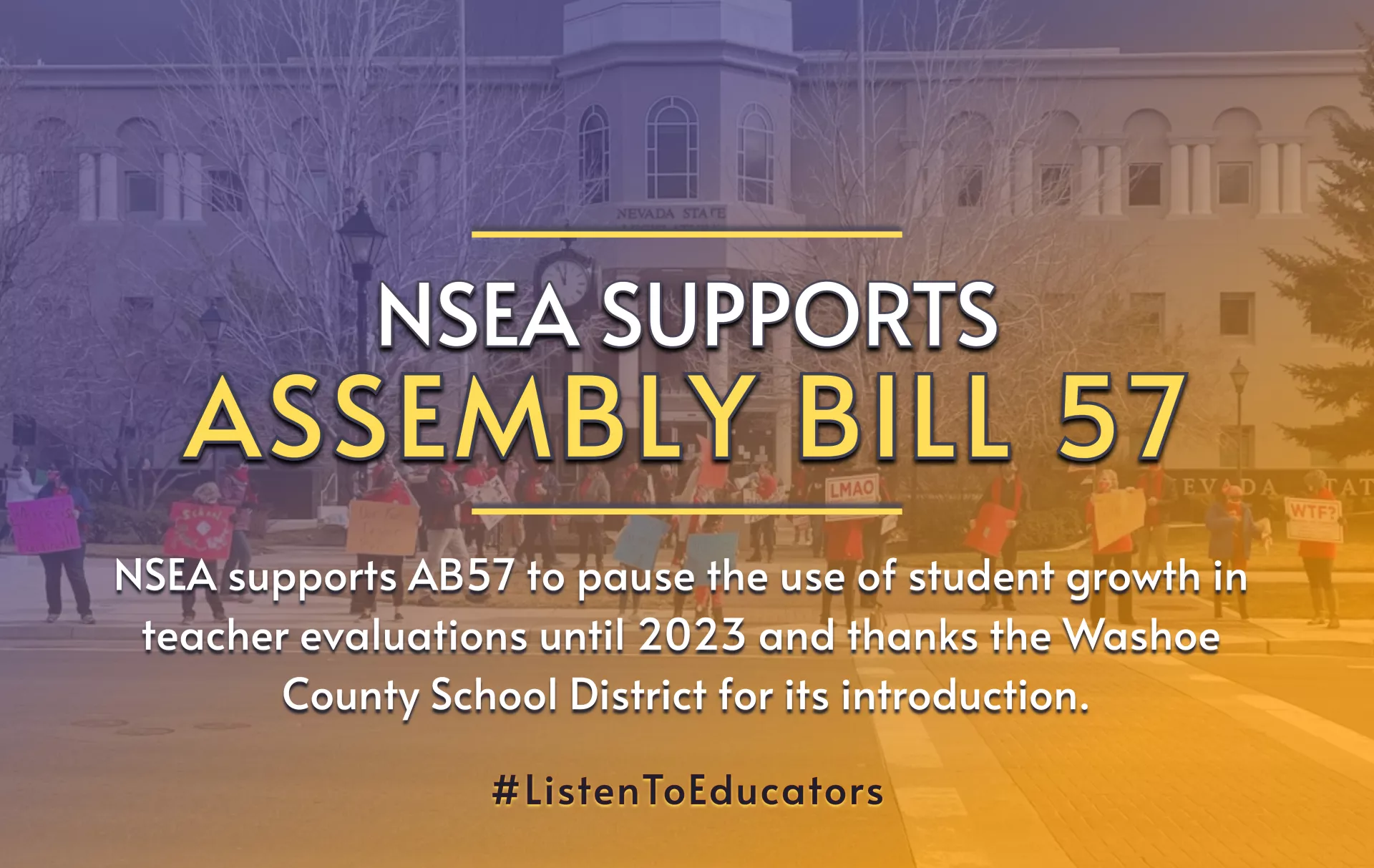NSEA believes teacher evaluations should be based on instructional practice, leadership, and professional responsibilities. That is why we have advocated limiting the use of student data in teacher evaluations and agreed on compromise legislation last session to reduce the percentage of a teacher’s evaluation based on this metric from 40 to 15%.
Then we were hit by the COVID-19 pandemic. When school buildings were ordered closed, teachers across the state quickly responded, engaging their students in distance learning. This school year, some teachers are back at their school building offering in-person instruction. Others are working in hybrid models, juggling in-person learning with distance learning opportunities. Many others continue their work of creating meaningful education experiences through full distance-learning. As stated by the Washoe County School District, we are in unprecedented times of changing instructional models, illness and exclusions, incomparable assessments, and extensive stress. This is a time for support, flexibility, ability to change course to meet students' basic and educational needs.
AB57 will help provide support and flexibility to Nevada teachers.
Educators want to be held accountable with fair, timely, rigorous, and valid measures. Evaluation structures that depend on student data are not a fair or valid measure, because student growth is dependent on many factors not under a teacher’s control. During COVID-19, these outside factors play an outsized role in student growth, especially in hybrid or distance learning models. For many Nevada students, parent involvement and support, comfort, and access with technology in the home, and individual student interest or disposition are factors that rival teacher practice in contributing to student growth.
Meeting the demands of the teaching profession requires tremendous will, ability, creativity, organization, and preparation. It also requires continuous learning, feedback, and support. To ensure high-quality teaching, it is necessary to have meaningful evaluations that provide a format for constructive assistance. Over the past 10 years, Nevada has worked to build this framework to measure teachers’ instructional practice and leadership as well as professional responsibilities. Unfortunately, Nevada’s schools and teachers have suffered through competing political emphasis on the use of student data, first with the use of test scores as part of an educators’ evaluations and now measuring growth. These competing priorities have compromised the entire accountability system—relegating proven educational practice including student engagement, lesson planning including differential instruction, scaffolding, professional development opportunities, and classroom management.
Downloads
What's On Your Mind?

